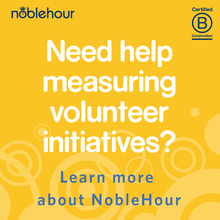This post was written by NobleHour Special Contributor Natasha Derezinski-Choo, a student at Grimsley High School in Greensboro, NC.
The evolution of online learning poses many questions about the future of education. Is online learning effective? Do online courses provide the same quality of education as traditional classrooms? Will online classes someday make classroom teachers obsolete? Like many innovations in the digital world, online learning is constantly being reviewed and modified. But I don’t feel that online education is a threat to the traditional classroom. Rather, it is another way the Internet spreads ideas, creates opportunity, and facilitates connectivity between people.

My experience with online classes has been at times both fulfilling and disastrous. The first online course I experienced was a writing course. When the books arrived
in the mail and I received my username and password, I knew little about formal writing. However, by the end of the course I had learned basic structure, techniques, and editing tools that compelled me to continue improving my writing. I learned more from this class than any other English course I had taken in school. Because I enjoyed it so much, the following semester, I signed up for a second writing course in the program. These courses challenged me not only in my writing but also in becoming an independent learner. In both cases, I acquired knowledge and skills related to my writing, and I also gained experience in time management, a strong work ethic, and practice in adaptability as a student by facing a different form of learning.
However, not all online classes are created equally. A couple years later, I signed up for a summer math course to earn an additional math credit. The program for this course was different, and I did not enjoy learning the material. The course consisted of reading the material and answering questions about it. I finished the course with good grades, but I did not feel that I had personally gained anything from this experience. The difference in this course was that it lacked the feeling of a regular classroom. In the writing courses I took, my instructor communicated regularly with me, continuously provided feedback, and engaged in live chat conversations with the class. I also interacted with my fellow students in class discussions and peer review. However, in the less enjoyable math course, a lack in human interaction with my teacher made the class unrewarding. My experience is not a critique of any particular course, but rather an insight into the nature of quality online education. For online courses to truly benefit students there must be a seamless liaison between teacher and student. In my opinion, the only significant difference between a successful online course and a traditional one is that the teacher and pupils are in different rooms. Online courses should facilitate typical class discussion, lessons, and feedback.
A popular format for online learning is the readily available Massive Open Online Course (MOOC). MOOCs are free online course accessible by anyone, unique for their unlimited enrolment. In a typical MOOC, a professor will upload a video of the lecture, reading materials, practice problems, and assignments comparable to those the professor would provide in the course he or she teaches. A computer typically grades assignments, and completion of the course does not usually entail university credit. In 2012, MOOCs gained attention when Ivy League universities began uploading full courses free of cost to the public. Some popular MOOC websites include Udacity, edX, and Coursera. The spirit of MOOCs is one of equality in education—the idea that wider access to higher education promotes connectivity, collaboration, and equal opportunity. MOOCs were developed to solve the problem of higher education by making it available to anyone at little to no cost. However, they are still young and not as fool-proof as they seem. The challenges educators face in achieving the accessibility and quality of learning that MOOCs attempt to provide represent the evolving state of online education.

MOOCs are often less successful than anticipated by their creators because the unlimited enrolment of the course means little human interaction between the student and the instructor. The instructor merely provides lectures and materials, but learning the content is left up to the student. Educators find that the students most successful in these types of courses are already high-achieving, educated, motivated students. MOOC developers and professors originally envisioned the MOOC as a way to bridge the education gap by making higher education accessible and affordable, but this has not been the case. Millions of dollars have been invested into MOOCs. Millions of students enroll, but only a fraction actually complete the course. MOOCs’ shortcomings are partially due to the lack of human connection between the teacher and the student. Without the ability to personally engage with an instructor students often find their experience with MOOCs to be less enriching than they had expected. Instead, MOOCs often prove mechanistic and unfulfilling. The teacher simply is irreplaceable in the classroom. MOOCs remain an experimental area of online education, and perhaps someday they will become a pathway for a universally accessible higher education experience. For the time being though, the mishaps of the MOOC show that quality education to the masses cannot be achieved without investment in the human connection between teacher and student.
The future of online education is exciting. It presents the opportunity for wider access to higher education. However, online courses cannot supplement traditional classrooms without considering the latter’s experience. For an online course to be comparable to a conventional classroom, the student’s learning experience must be one that mimics the ways in which teachers bring out students’ potential.
images via: CollegeDegrees360, velkr0





